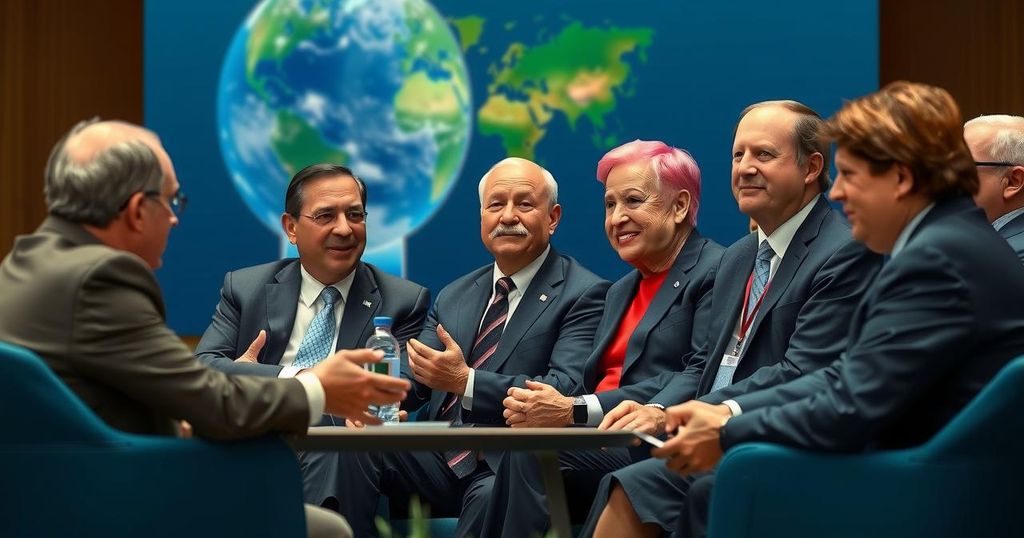At the United Nations climate summit in Baku, leaders expressed determination to continue global climate efforts amidst concerns over President-elect Donald Trump’s potential withdrawal from the Paris Agreement and rollback of U.S. climate policies. Unlike past summits, diplomats are now aware of the immediate risks Trump’s administration poses to international climate initiatives.
At the recently convened United Nations climate summit in Baku, Azerbaijan, global leaders expressed their commitment to ongoing initiatives aimed at curbing climate change, regardless of the impending tenure of President-elect Donald Trump. Despite the show of unity, there remains a palpable concern regarding the potential impact of diminished U.S. leadership on global climate efforts. Unlike the previous climate talks in 2016, when Trump’s election marked a sudden disruption, diplomats now recognize the tangible implications of his promise to withdraw from the Paris Agreement and dismantle the current U.S. climate policies under President Biden. The atmosphere at COP29 reflected a cautious understanding that while Trump’s re-election may not have created the same level of surprise, it nonetheless posed significant risks to international climate agreements. Observers noted a keen awareness of Trump’s intentions, acknowledging that should he act on his pledge to abandon the Paris Agreement, it could adversely affect collaborative climate efforts worldwide. Additionally, his plans to overturn Biden’s comprehensive climate legislation further intensify concerns of a leadership void in global climate negotiations. The sentiment shared among attendees at the summit highlighted a recognition of the evolving political landscape and its potential ramifications on sustainability initiatives. Azerbaijan, a nation reliant on oil and gas exports, served as a fitting backdrop for these discussions, as countries grappled with balancing economic interests against the urgent need for effective climate action.
The article discusses the recent United Nations Climate Change Conference (COP29) held in Baku, Azerbaijan, in light of former President Donald Trump’s re-election. It emphasizes the concerns among global leaders regarding the future of international climate efforts, particularly in the absence of strong U.S. leadership. The context of Trump’s previous commitment to withdraw from major climate agreements and dismantle existing U.S. policies shapes the dialogue at the summit, focusing on the potential impacts on global initiatives to combat climate change.
In summary, the COP29 summit illuminated the apprehension among global leaders concerning the challenges posed by Trump’s re-election to coordinated climate action. While a commitment to combating climate change remains, the potential withdrawal of U.S. support raises significant questions about the effectiveness of future international agreements. As nations strive to address the climate crisis, the role of U.S. leadership becomes increasingly critical in shaping global responses.
Original Source: www.eenews.net






